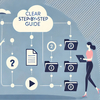
What are neologisms, how to use them in technical writing, and why do they make some people angry? These are the questions we are going to answer in this blog post.
What are Neologisms

If we look through the corresponding Wikipedia article, we can find out that neologisms are, basically, words that have recently appeared in a language, but has not been fully accepted just yet. Neologisms can be coined by merging several words or by giving some words unique prefixes or suffixes. Quite often, new words appear around some specific event, personality, technology. At the moment, the Internet and emerging technologies are, probably, the greatest sources of new words.
But, for how long should one consider a word ‘new’? Well, the answer is almost ridiculous. There are, actually, different opinions on when a word ceases to be a neologism, but the general idea is – the word is not ‘new’ as soon as it is no longer perceived as ‘new’ by the majority 🙂
Every word in a language has its own path though. Some neologisms spread quite rapidly through mass media, word of mouth, etc. These words become ‘old’ faster. For others, it can take years and even decades to stop being neologisms.
Technical Writing – the Cradle of Neologisms

Neologisms are very often generation-specific, that is why they can be hated upon by other generations. The best example here would be Internet-based neologisms, like ‘lol’, ‘meh’, ‘fyi’, etc. Also, most neologisms are field-specific. It just happens to be so that most of emerging technologies are connected to the IT sphere nowadays.
So, with generational and field-of-usage factors combined, we have launched a huge word-coining machine, and it is not going to stop!
And, of course, as emerging technologies definitely require technical documentation, neologisms become part of the techcomm community discourse. The truth is – neologisms just can’t be avoided in certain texts, so, we must come up with a way to tackle them properly.
Here’s our take on using neologisms in user manuals:
- Create a brief set of rules for using neologisms for your documentation team. This can be a separate section in your documentation style guide. The whole team should be on the same page to keep user manuals consistent.
- Always consider your target audience first. Figure out how prepared these people are for neologisms by analysing your average reader.
- Make sure that a word is known enough to even be mentioned in your user guide – some neologisms never gain enough popularity and just die out with time. You can use such tools as Google Trends to see what is going on with the word of interest.
- Just like you would explain technical terms for your readers, go the extra mile to explain neologisms. In online documentation, you can do this by means of Read More sections or references.
These basic steps can help you handle neologisms in technical documentation and make your user manuals easier to read and comprehend. By the way, if you are concerned about general readability of your writing, take a look at this article on pros and cons of readability scores for technical writers.
Conclusion
Not everyone likes neologisms. Some people believe that in many cases we can find an old and familiar word to describe a new concept. But, it seems that most languages do not agree with this. As a system, any language is trying to maintain itself in the best possible way. And, it turns out that coining new words seems to work just fine for this purpose. Technical writers are among those people who create and change the language every day, so, it is very important for them to use words wisely.
Good luck with your technical writing!
ClickHelp Team
Author, host and deliver documentation across platforms and devices



